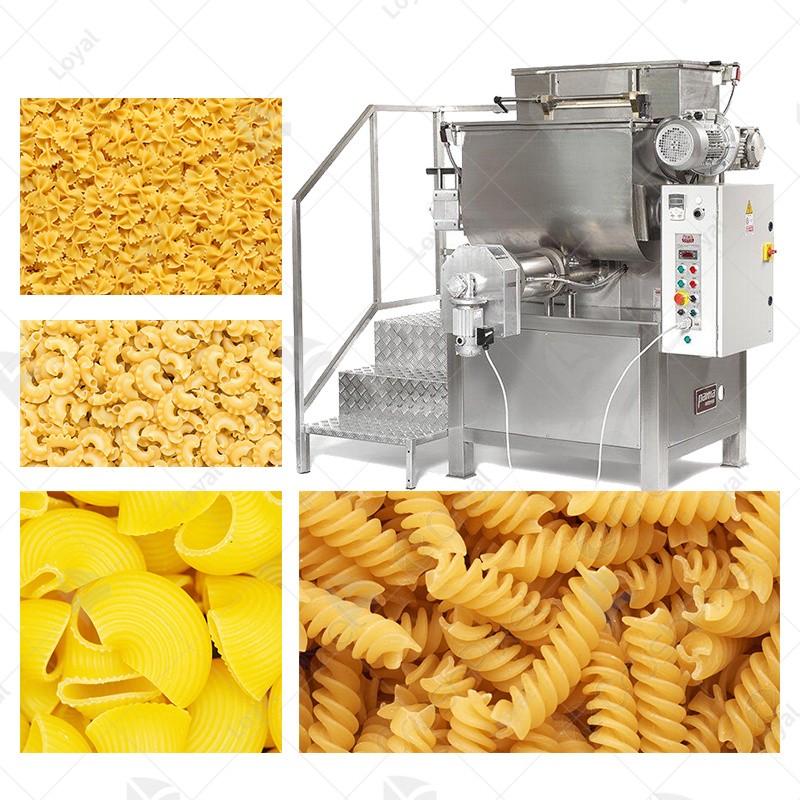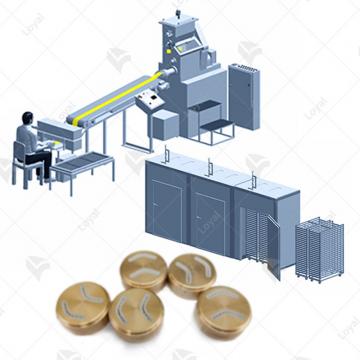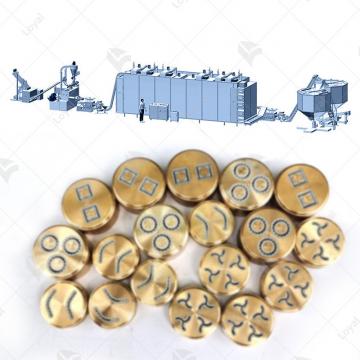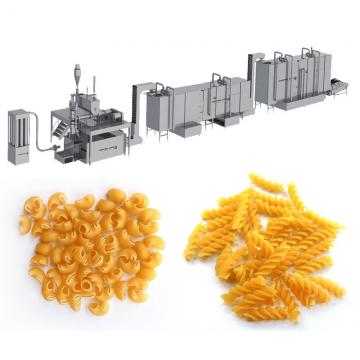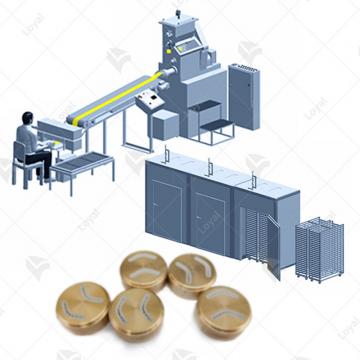Achieving Peak Performance: The Ultimate Fully Automated Spaghetti Pasta Production Line
Achieving Peak Performance: The Ultimate Fully Automated Spaghetti Pasta Production Line
In the dynamic landscape of food production, the demand for efficient and automated processes is more critical than ever. The concept of a fully automated Spaghetti Pasta Production Line represents a significant leap forward in achieving peak performance and meeting the growing needs of consumers for high-quality pasta products.Shandong Loyal Industrial Co., Ltd. has incorporated advanced technologies from Tecalit and Lineapasta in the production of its macaroni.

Components of the Ultimate Spaghetti Pasta Production Line
To attain the pinnacle of performance, this automated production line incorporates cutting-edge machinery and technology. The breakdown of key components includes advanced pasta extrusion techniques, the seamless integration of automated processes, and meticulous attention to energy-efficient design considerations. These elements synergize to create a production line that sets new standards in pasta manufacturing.
Advantages of Full Automation
The advantages of full automation in the Spaghetti Pasta Production Line are multifaceted. With increased production efficiency and output, businesses can meet market demands with ease. Consistency in product quality becomes a hallmark, ensuring that every batch of pasta adheres to the highest standards. Furthermore, the reduction in manual labor and associated costs contributes to improved overall operational efficiency.
Innovative Technologies in Spaghetti Pasta Manufacturing
Exploring the forefront of pasta manufacturing technology reveals the adoption of advanced extrusion techniques, smart sensors for quality control, and a commitment to energy-saving features and sustainability. These innovations not only enhance the production process but also align with the industry's increasing focus on environmental responsibility.
Case Studies: Successful Implementation
Real-world case studies illustrate the tangible benefits of adopting a fully automated Spaghetti Pasta Production Line. Companies, including those associated with renowned pasta brands like Barilla, De Cecco, Creamette, San Giorgio, and Great Value, showcase how automated production positively impacts overall performance and profitability.

Challenges and Solutions
Addressing the challenges in implementing automated systems is crucial. By delving into common obstacles, such as initial setup complexities or workforce adaptation, and providing practical solutions and best practices, businesses can navigate the transition to automation successfully.
Future Trends in Spaghetti Pasta Production
Looking ahead, discussions on emerging technologies and trends shed light on the future of pasta manufacturing. Anticipating advancements in automation, this section explores how the industry is poised for continuous improvement in efficiency and sustainability.
FAQs: Common Questions About Spaghetti Pasta Production Line
Q1: How does a fully automated Spaghetti Pasta Production Line improve efficiency?
A1: The integration of cutting-edge machinery and technology streamlines the production process, reducing manual intervention and optimizing workflow. This results in increased efficiency and faster output, meeting market demands more effectively.
Q2: Can the automated system maintain consistent product quality?
A2: Absolutely. Automated processes ensure a standardized approach to pasta production, minimizing variations and ensuring every batch meets the highest quality standards. Smart sensors play a crucial role in maintaining this consistency.
Q3: What impact does full automation have on labor costs?
A3: Full automation significantly reduces reliance on manual labor, leading to a substantial reduction in associated costs. This allows businesses to allocate resources more strategically and invest in other aspects of their operations.
Q4: Are there notable pasta brands using fully automated production lines?
A4: Yes, several renowned pasta brands, including Barilla, De Cecco, Creamette, San Giorgio, and Great Value, have embraced fully automated production lines. These cases serve as success stories, demonstrating the positive impact on overall performance and product quality.
Q5: What challenges might businesses face in implementing automated systems?
A5: Common challenges include the initial complexity of setting up automated systems and the need for the workforce to adapt to new technologies. However, with proper planning and training, these challenges can be effectively addressed.
Q6: How does the Spaghetti Pasta Production Line contribute to sustainability?
A6: The incorporation of energy-efficient design considerations and sustainability features aligns with the industry's commitment to environmental responsibility. Automated systems can be designed to minimize waste and energy consumption, contributing to a more sustainable pasta manufacturing process.

Conclusion
In summary, the ultimate fully automated Spaghetti Pasta Production Line stands as a testament to the transformative power of technology in the food industry. As businesses navigate the evolving landscape, embracing automation becomes not just a choice but a necessity for those seeking peak performance and sustainable practices. From increased efficiency and consistent quality to addressing challenges and shaping the future, the journey towards fully automated pasta production marks a significant stride towards a more advanced and sustainable food manufacturing sector.

